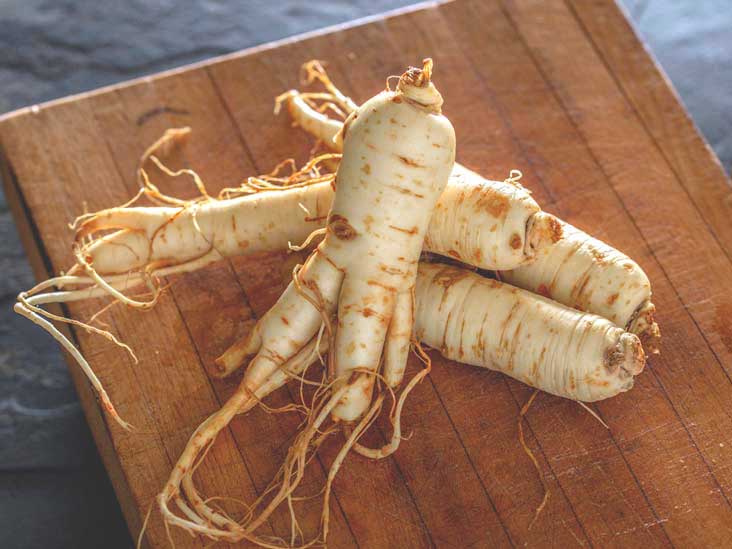February 2018
Ariene Semeco
Ginseng has been used in traditional Chinese medicine for centuries.
This slow-growing, short plant with fleshy roots can be classified three ways, depending on how long it is grown: fresh, white or red.
Fresh ginseng is harvested before 4 years, while white ginseng is harvested between 4–6 years and red ginseng is harvested after 6 or more years.
There are many types of this herb, but the most popular are American ginseng (Panax quinquefolius) and Asian ginseng (Panax ginseng).
American and Asian ginseng vary in their concentration of active compounds and effects on the body. It is believed that American ginseng works as a relaxing agent, whereas the Asian variety has an invigorating effect.
Ginseng contains two significant compounds: ginsenosides and gintonin. These compounds complement one another to provide health benefits.
Here are 7 evidence-based health benefits of ginseng.
1. Potent Antioxidant That May Reduce Inflammation
Ginseng has beneficial antioxidant and anti-inflammatory properties.
Some test-tube studies have shown that ginseng extracts and ginsenoside compounds could inhibit inflammation and increase antioxidant capacity in cells.
For example, one test-tube study found that Korean red ginseng extract reduced inflammation and improved antioxidant activity is skin cells from people with eczema.
The results are promising in humans, as well.
One study investigated the effects of having 18 young male athletes take 2 grams of Korean red ginseng extract three times per day for seven days.
The men then had levels of certain inflammatory markers tested after performing an exercise test. These levels were significantly lower than in the placebo group, lasting for up to 72 hours after testing.
However, it should be noted that the placebo group got a different medicinal herb, so these results should be taken with a grain of salt and more studies are needed.
Lastly, a larger study followed 71 postmenopausal women who took 3 grams of red ginseng or a placebo daily for 12 weeks. Antioxidant activity and oxidative stress markers were then measured.
Researchers concluded that red ginseng may help reduce oxidative stress by increasing antioxidant enzyme activities










